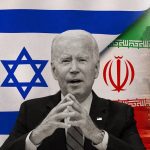The rise of the so-called “Brothers of Italy” has elbowed its way to Western media. Brothers of Italy (BoI) is the political party envisaged to lead the formation of the next Italian government following resignation of Mario Draghi on 21 July and the call for new elections to be held on 25 September.
Opinion polls on election results suggest that Giorgia Meloni, leader of BoI, will be tasked to form the new cabinet.
Obviously, BoI has nothing to do with the Muslim Brotherhood (MB), yet both embrace the same hardline right-wing ideology and share close similarities. BoI is a civic party with fascist roots and the MB is a religious group that was initially influenced by the fascist movement. For the two groups, the socio-economic crises provided fertile ground for their growth and both groups capitalized on their position in the opposition to sully those who are in power and criticize their performance, without assuming any responsibility, to later seize the opportunity to take power, introducing themselves as an alternative to those in power, after causing citizens to lose confidence in the regime given the economic crises and the systematic campaigns of criticism from the right-wing forces sitting in the opposition seats.
Notwithstanding these similarities, structural differences do exist between BoI and the MB. It’s interesting to introduce readers to this Italian party that may form the government within the coming months, not only out of Italy’s standing as one of the key pillars of the European Union (EU) but for the strong Egyptian-Italian relations that are based on mutual interests and multisectoral partnerships, particularly in the Eastern Mediterranean region.
BoI was founded in 2012, with Giorgia Meloni as a co-founder. Meloni, who is 45, has been heading the party since 2014 and is now expected to become the first woman to ever hold the position of Prime Minister of Italy. Before going into politics, Meloni worked as a journalist and served as the minister of youth in a coalition government led by former Prime Minister Berlusconi.
Last year, Meloni refused to participate in the “national unity” government led by Mario Draghi. This step proved valuable for her party as all parties that joined the government, including the hardline right wing parties, ended up losing their credibility. Not participating in Draghi’s government, BoI claimed to be representing the “real opposition” and to be the alternative to all those participating in the government, which enabled it to obtain approval of the public opinion particularly amid the difficult economic conditions experienced by the Italian citizens, who blamed the government for this economic situation.
BoI is being described as a neo-fascist party with roots in the Italian social movement. The majority of BoI members look favorably towards the Mussolini regime and two descendants of the Mussolini family have joined the party.
The Party adopts populist beliefs, seeing that globalization has failed. It opposes mass immigration and what it calls “Islamization” of Italy and Europe and calls for the strict application of law. On social issues, it embraces traditional values, raises fears of the decay of civilization, and stands against abortion and same-sex marriage.
Amid the economic malaise that beset Italy, the slowed economic growth, and the high levels of unemployment and public debt, BoI’s view that “national salvation can only be attained through abandoning immigrants and defending the traditional family form” have found receptive ears among the public”, says an expert on the Italian affairs.
On the EU, BoI remains skeptical about the EU project but doesn’t call for Italy’s withdrawal from the pan-European body as Britain did. However, it advocates reducing the control of bureaucracy over the EU and calls for creating a “European confederation without bureaucrats”. Beyond this, it favors re-negotiating the EU Treaties and modifying the Italian Constitution to give primacy to Italian law over that of the EU.
While some argue that the political changes in Italy, spurred by the economic crisis arising from the Ukraine war, will give rise to new elites closer to Russia, BoI’s leadership have made clear its opposed stance on Russia, stating that the party knows well its international allies.
In short, Italy is undergoing major political transformations that may spill over into other European countries, given the extended economic crisis in these countries. These transformations offer important political lessons that should be carefully considered given Egypt’s special cooperation ties with Italy and other European countries that may be subject to similar changes.
This article was originally published in Al-Masry Al-Youm newspaper on 25 July 2022.











